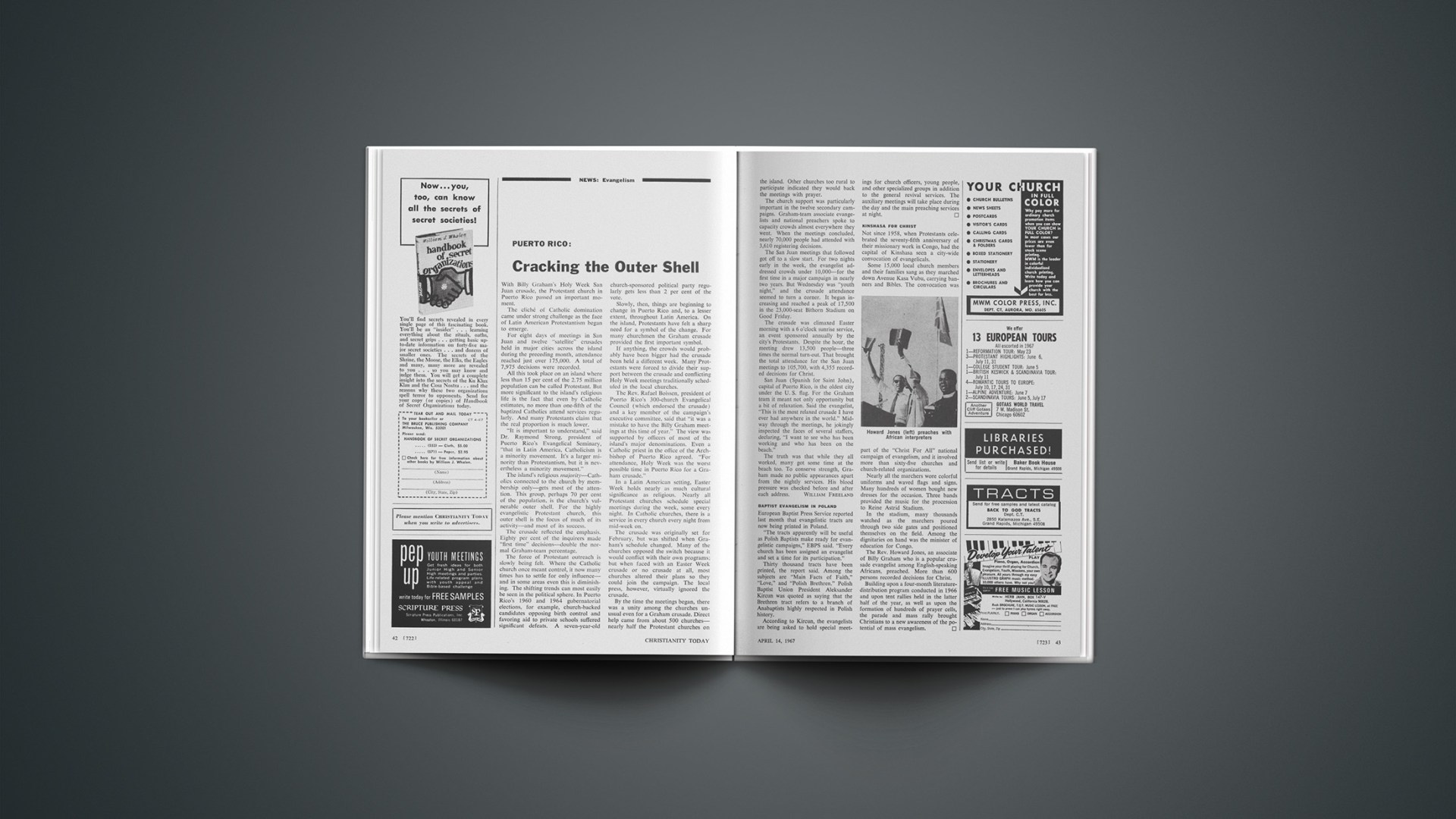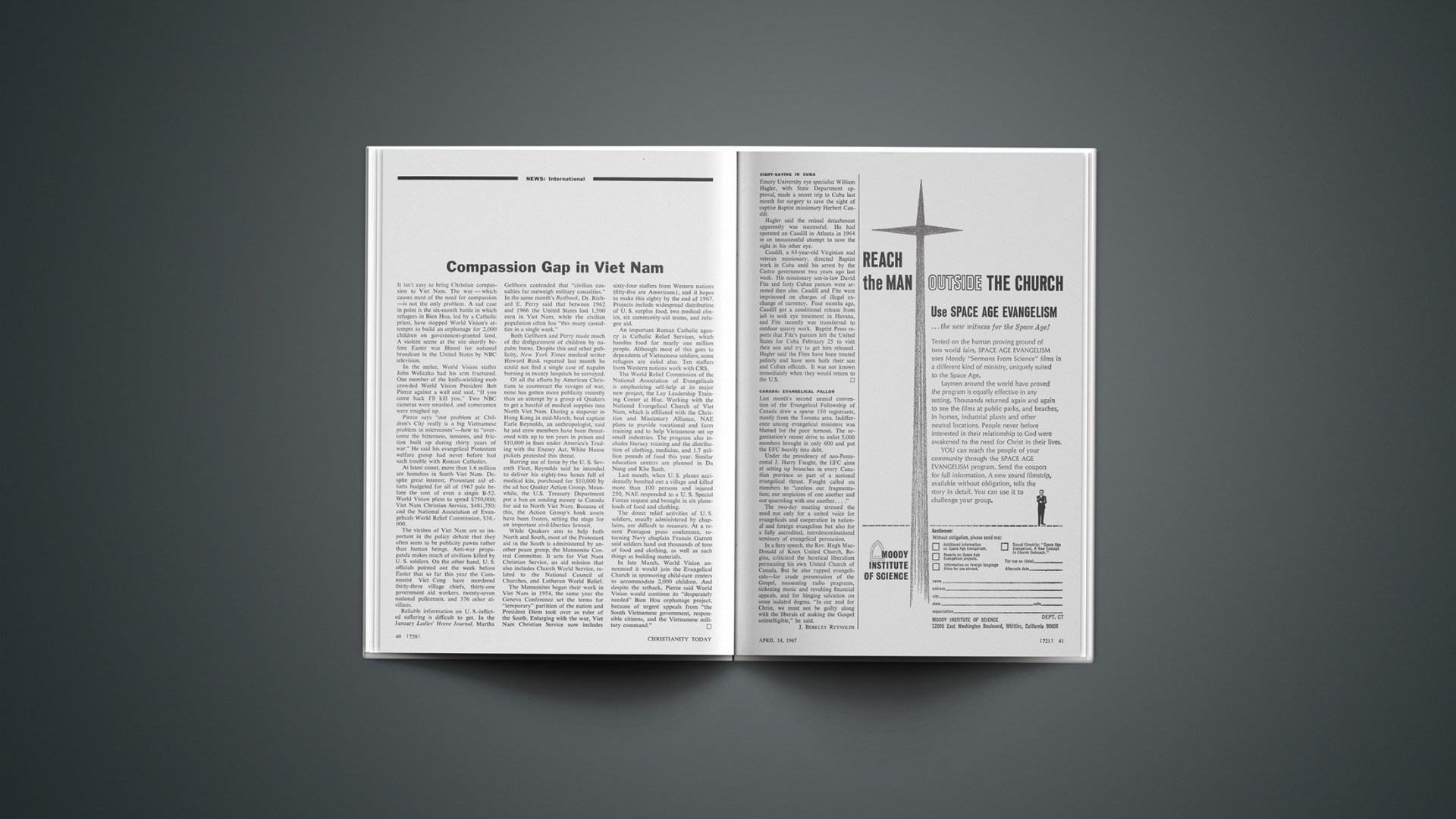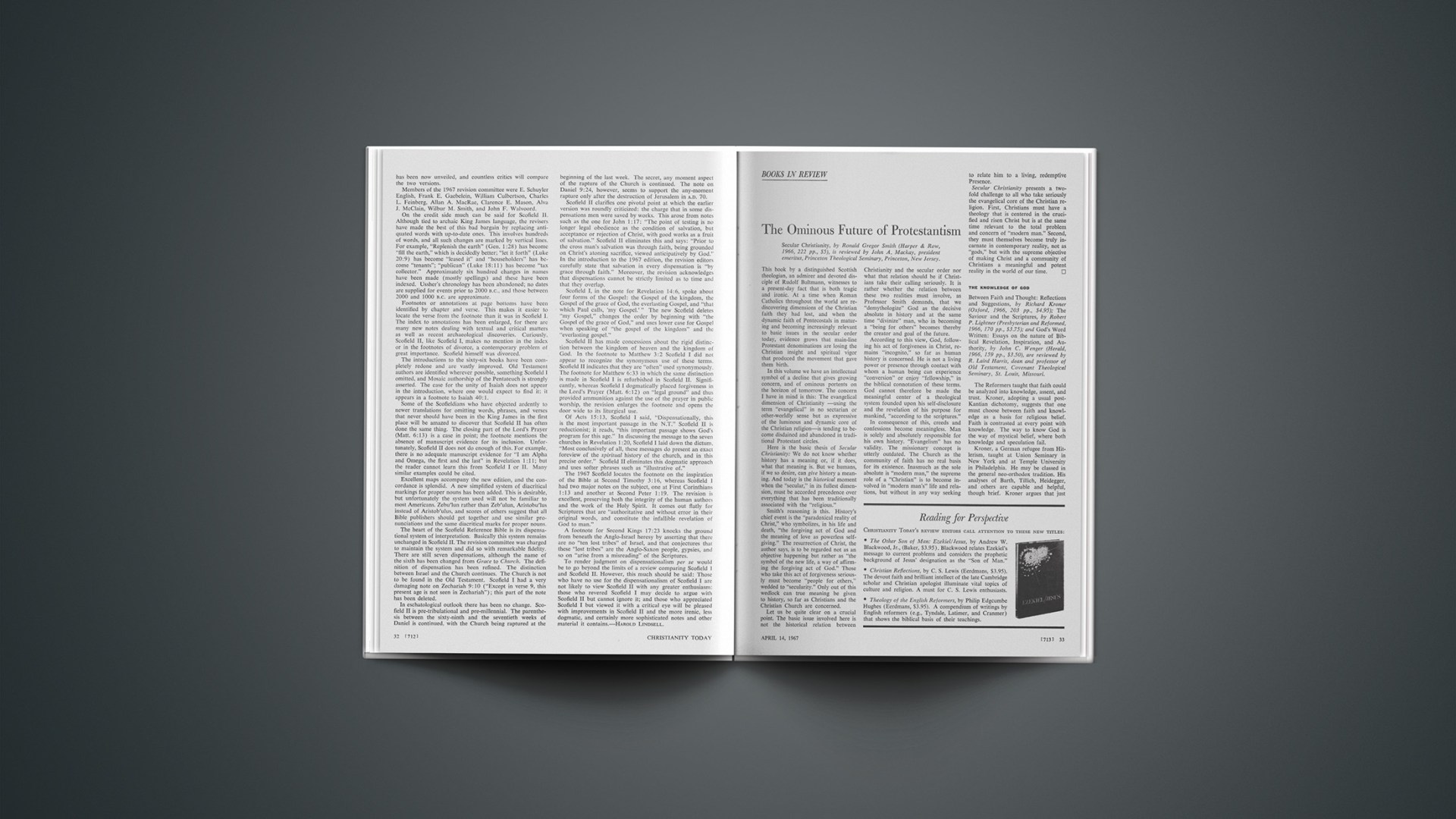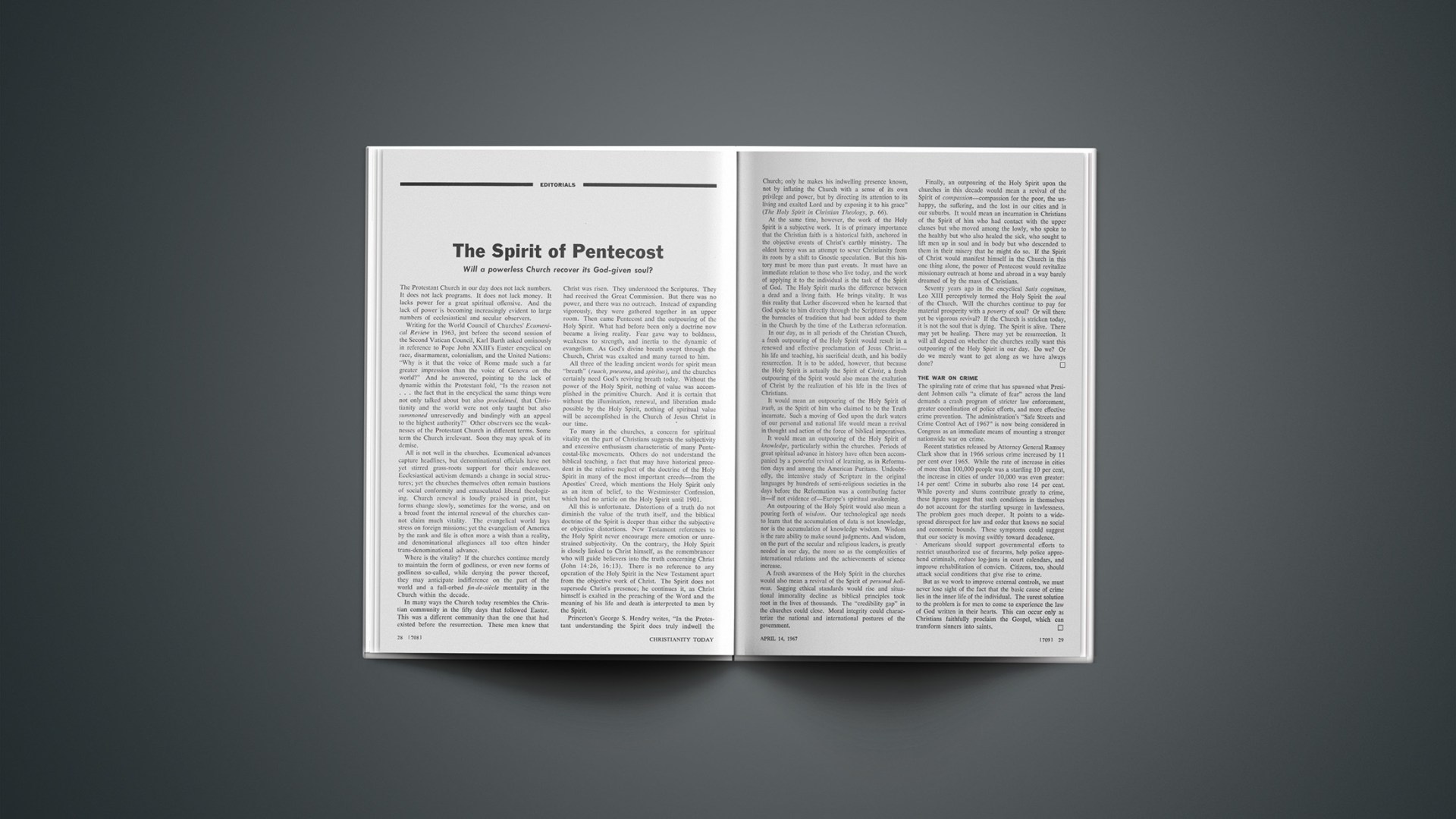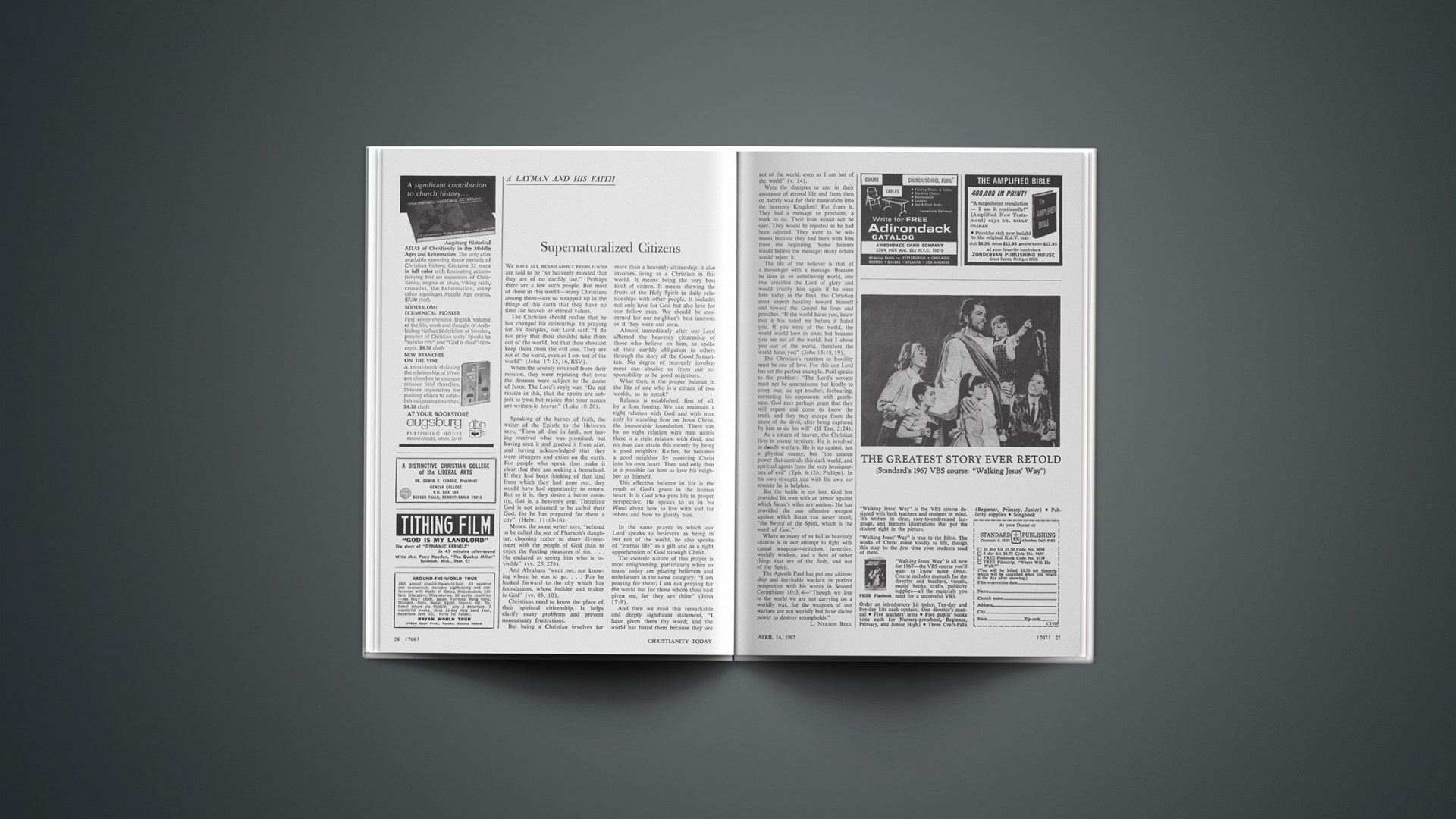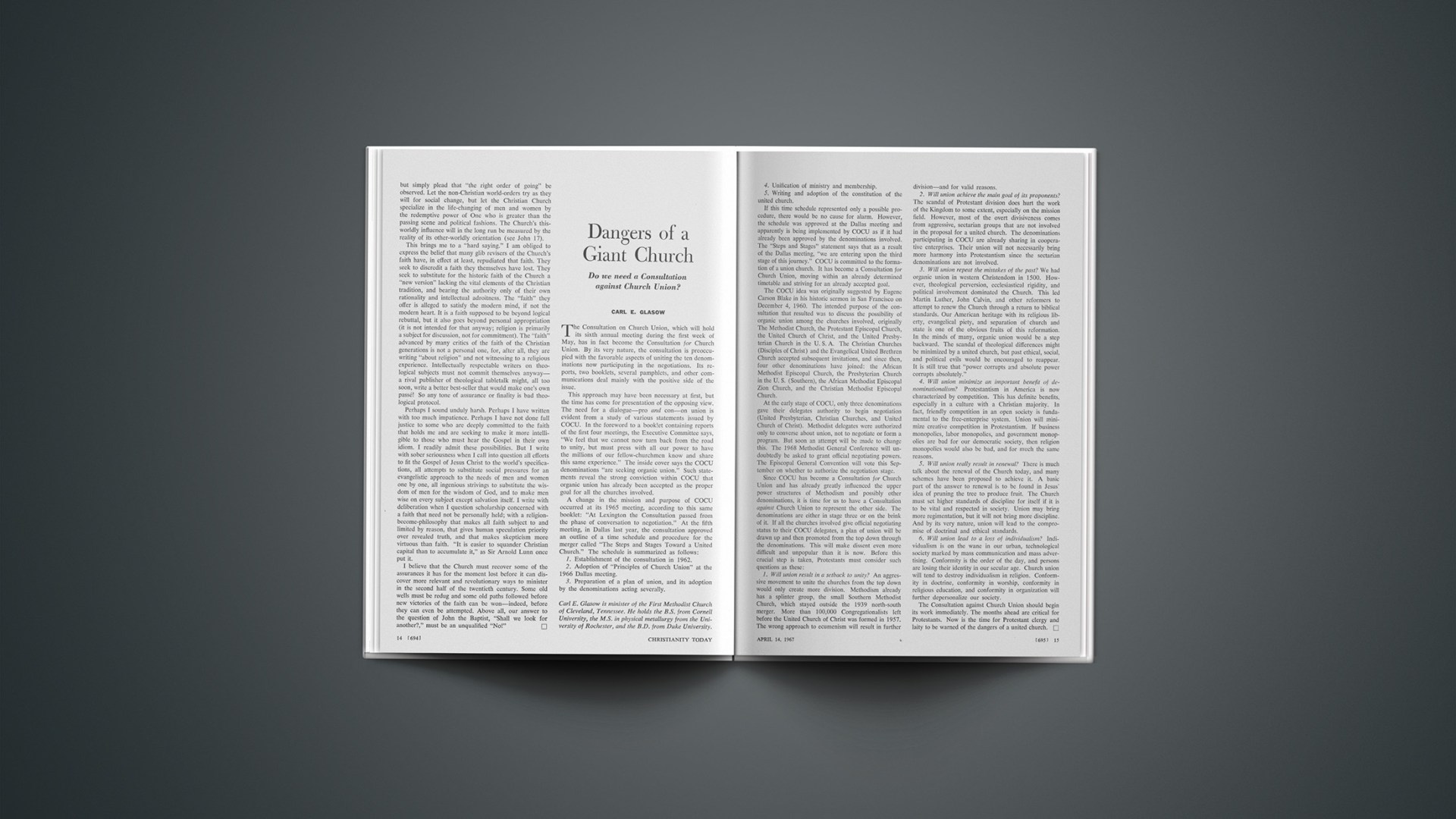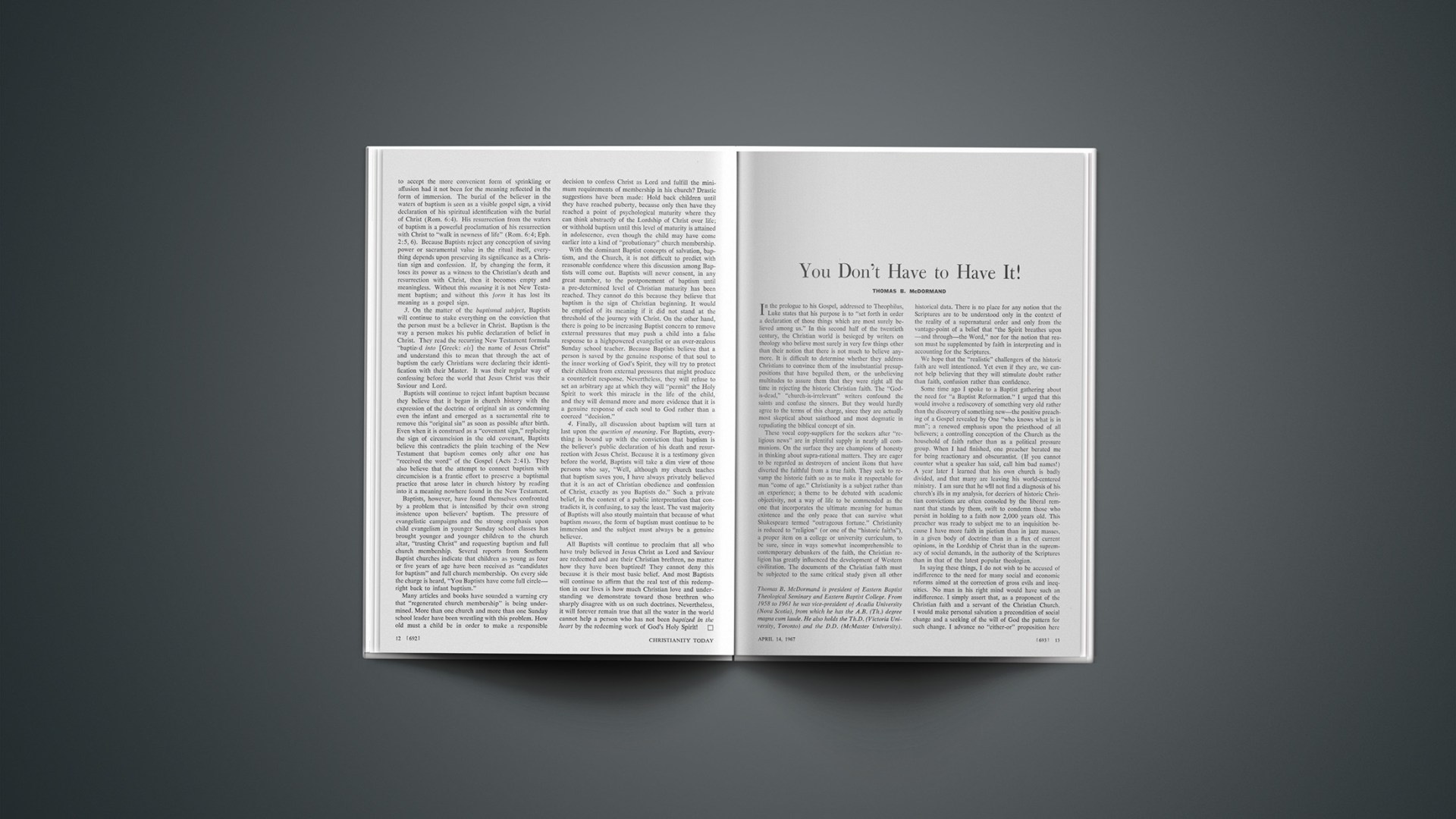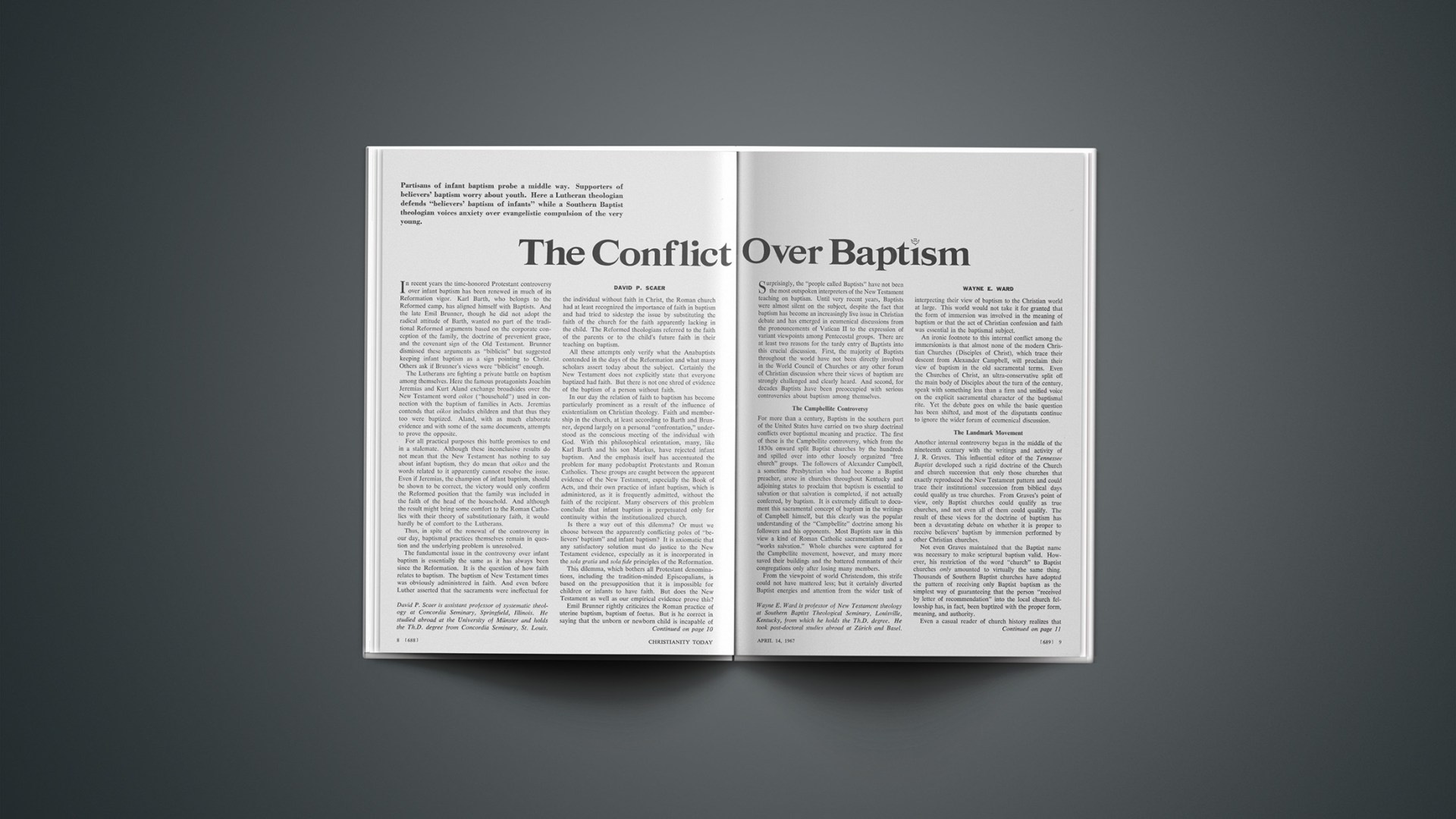With Billy Graham’s Holy Week San Juan crusade, the Protestant church in Puerto Rico passed an important moment.
The cliché of Catholic domination came under strong challenge as the face of Latin American Protestantism began to emerge.
For eight days of meetings in San Juan and twelve “satellite” crusades held in major cities across the island during the preceding month, attendance reached just over 175,000. A total of 7,975 decisions were recorded.
All this took place on an island where less than 15 per cent of the 2.75 million population can be called Protestant. But more significant to the island’s religious life is the fact that even by Catholic estimates, no more than one-fifth of the baptized Catholics attend services regularly. And many Protestants claim that the real proportion is much lower.
“It is important to understand,” said Dr. Raymond Strong, president of Puerto Rico’s Evangelical Seminary, “that in Latin America, Catholicism is a minority movement. It’s a larger minority than Protestantism, but it is nevertheless a minority movement.”
The island’s religious majority—Catholics connected to the church by membership only—gets most of the attention. This group, perhaps 70 per cent of the population, is the church’s vulnerable outer shell. For the highly evangelistic Protestant church, this outer shell is the focus of much of its activity—and most of its success.
The crusade reflected the emphasis. Eighty per cent of the inquirers made “first time” decisions—double the normal Graham-team percentage.
The force of Protestant outreach is slowly being felt. Where the Catholic church once meant control, it now many times has to settle for only influence—and in some areas even this is diminishing. The shifting trends can most easily be seen in the political sphere. In Puerto Rico’s 1960 and 1964 gubernatorial elections, for example, church-backed candidates opposing birth control and favoring aid to private schools suffered significant defeats. A seven-year-old church-sponsored political party regularly gets less than 2 per cent of the vote.
Slowly, then, things are beginning to change in Puerto Rico and, to a lesser extent, throughout Latin America. On the island, Protestants have felt a sharp need for a symbol of the change. For many churchmen the Graham crusade provided the first important symbol.
If anything, the crowds would probably have been bigger had the crusade been held a different week. Many Protestants were forced to divide their support between the crusade and conflicting Holy Week meetings traditionally scheduled in the local churches.
The Rev. Rafael Boissen, president of Puerto Rico’s 300-church Evangelical Council (which endorsed the crusade) and a key member of the campaign’s executive committee, said that “it was a mistake to have the Billy Graham meetings at this time of year.” The view was supported by officers of most of the island’s major denominations. Even a Catholic priest in the office of the Archbishop of Puerto Rico agreed. “For attendance, Holy Week was the worst possible time in Puerto Rico for a Graham crusade.”
In a Latin American setting, Easter Week holds nearly as much cultural significance as religious. Nearly all Protestant churches schedule special meetings during the week, some every night. In Catholic churches, there is a service in every church every night from mid-week on.
The crusade was originally set for February, but was shifted when Graham’s schedule changed. Many of the churches opposed the switch because it would conflict with their own programs; but when faced with an Easter Week crusade or no crusade at all, most churches altered their plans so they could join the campaign. The local press, however, virtually ignored the crusade.
By the time the meetings began, there was a unity among the churches unusual even for a Graham crusade. Direct help came from about 500 churches—nearly half the Protestant churches on the island. Other churches too rural to participate indicated they would back the meetings with prayer.
The church support was particularly important in the twelve secondary campaigns. Graham-team associate evangelists and national preachers spoke to capacity crowds almost everywhere they went. When the meetings concluded, nearly 70,000 people had attended with 3,610 registering decisions.
The San Juan meetings that followed got off to a slow start. For two nights early in the week, the evangelist addressed crowds under 10,000—for the first time in a major campaign in nearly two years. But Wednesday was “youth night,” and the crusade attendance seemed to turn a corner. It began increasing and reached a peak of 17,500 in the 23,000-seat Bithorn Stadium on Good Friday.
The crusade was climaxed Easter morning with a 6 o’clock sunrise service, an event sponsored annually by the city’s Protestants. Despite the hour, the meeting drew 13,500 people—three times the normal turn-out. That brought the total attendance for the San Juan meetings to 105,700, with 4,355 recorded decisions for Christ.
San Juan (Spanish for Saint John), capital of Puerto Rico, is the oldest city under the U. S. flag. For the Graham team it meant not only opportunity but a bit of relaxation. Said the evangelist, “This is the most relaxed crusade I have ever had anywhere in the world.” Midway through the meetings, he jokingly inspected the faces of several staffers, declaring, “I want to see who has been working and who has been on the beach.”
The truth was that while they all worked, many got some time at the beach too. To conserve strength, Graham made no public appearances apart from the nightly services. His blood pressure was checked before and after each address.
WILLIAM FREELAND
Baptist Evangelism In Poland
European Baptist Press Service reported last month that evangelistic tracts are now being printed in Poland.
“The tracts apparently will be useful as Polish Baptists make ready for evangelistic campaigns,” EBPS said. “Every church has been assigned an evangelist and set a time for its participation.”
Thirty thousand tracts have been printed, the report said. Among the subjects are “Main Facts of Faith,” “Love,” and “Polish Brethren.” Polish Baptist Union President Aleksander Kircun was quoted as saying that the Brethren tract refers to a branch of Anabaptists highly respected in Polish history.
According to Kircun, the evangelists are being asked to hold special meetings for church officers, young people, and other specialized groups in addition to the general revival services. The auxiliary meetings will take place during the day and the main preaching services at night.
Kinshasa For Christ
Not since 1958, when Protestants celebrated the seventy-fifth anniversary of their missionary work in Congo, had the capital of Kinshasa seen a city-wide convocation of evangelicals.
Some 15,000 local church members and their families sang as they marched down Avenue Kasa Vubu, carrying banners and Bibles. The convocation was part of the “Christ For All” national campaign of evangelism, and it involved more than sixty-five churches and church-related organizations.
Nearly all the marchers wore colorful uniforms and waved flags and signs. Many hundreds of women bought new dresses for the occasion. Three bands provided the music for the procession to Reine Astrid Stadium.
In the stadium, many thousands watched as the marchers poured through two side gates and positioned themselves on the field. Among the dignitaries on hand was the minister of education for Congo.
The Rev. Howard Jones, an associate of Billy Graham who is a popular crusade evangelist among English-speaking Africans, preached. More than 600 persons recorded decisions for Christ.
Building upon a four-month literature-distribution program conducted in 1966 and upon tent rallies held in the latter half of the year, as well as upon the formation of hundreds of prayer cells, the parade and mass rally brought Christians to a new awareness of the potential of mass evangelism.

